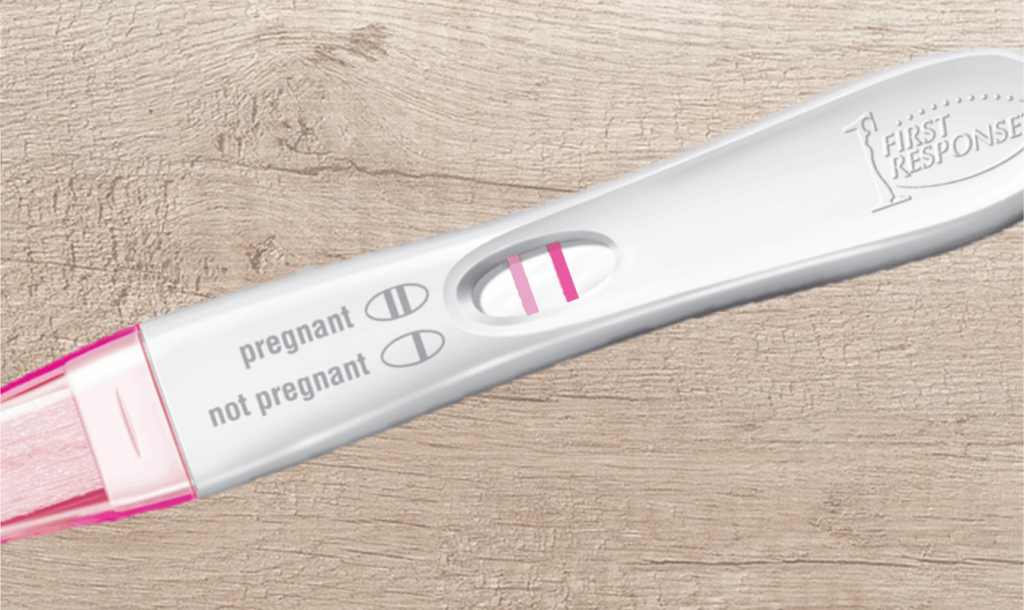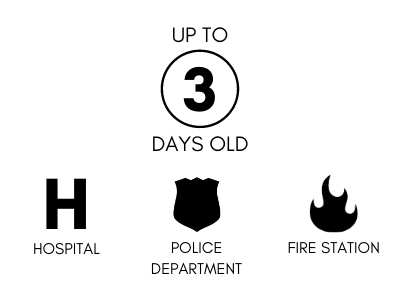Pregnancy
 If you think you might be pregnant, you can buy a home pregnancy test or visit a healthcare provider’s office for testing. Home pregnancy tests are very accurate and can be more convenient than scheduling an appointment. However, if you take a home pregnancy test and it’s positive, you should schedule an appointment with a healthcare provider right away.
If you think you might be pregnant, you can buy a home pregnancy test or visit a healthcare provider’s office for testing. Home pregnancy tests are very accurate and can be more convenient than scheduling an appointment. However, if you take a home pregnancy test and it’s positive, you should schedule an appointment with a healthcare provider right away.
During your initial visit, you should talk with your provider about your desires for this pregnancy. In general, you have three options:
- Becoming a parent,
- Having an abortion, or
- Placing the child up for adoption.
Counseling and medical care related to these options can be found at the resources below. For information about abortion, visit the Abortion page.
NOTE!
If you’re considering visiting a clinic, be sure to ask if those you meet are licensed medical providers and if they offer information and services related to pregnancy options. Some clinics, called crisis pregnancy centers or limited service pregnancy centers, offer pregnancy testing and sometimes provide ultrasounds, but they may focus solely on non-abortion options for your pregnancy. Keep in mind, that a healthcare provider should never pressure you into making a decision about your pregnancy. If you need help finding a local provider, visit the Find a Doctor page.
If you’re considering trying to become pregnant, you should start taking prenatal vitamins with folic acid. You should also talk to your healthcare provider about your medical conditions and the medicines you’re taking so that your pregnancy can be as healthy as possible.
If you don’t want to become pregnant, you should use a birth control method. Visit the Birth Control Methods page find the birth control that’s right for you.
Unplanned Pregnancy

Sometimes you may find that you’re pregnant when you don’t plan to be. This may be because you:
- Had unprotected sex without using birth control,
- Were using birth control incorrectly, or because you
- Were using birth control correctly and were one of the few people who became pregnant anyway.
If you find out that you’re pregnant, you may consider continuing the pregnancy or ending the pregnancy by having an abortion. There are many things that factor into this decision: finances, career goals, the family or children that you already have, the relationship that you have with the person with whom you became pregnant, and social support from family and friends. There is no right or wrong way to make this decision. You are the only person who must be comfortable and certain of your decision.
Continuing the Pregnancy

Even though your pregnancy was unplanned, you may decide that continuing the pregnancy is the right decision for you. If you choose to continue the pregnancy, it’s important to start prenatal care as soon as you know that you’re pregnant.
- You may choose to see a physician (an obstetrician-gynecologist (OB/GYN) or a family medicine physician) or a midwife for prenatal care.
- If you already have health insurance, you can find a healthcare provider for prenatal care through your health insurance if you don’t already have a primary care provider.
- If you do not have health insurance, you may be eligible for health insurance once you’re pregnant. Prenatal care consists of bloodwork, physical exams, ultrasounds, and genetic testing that are done at various points throughout the pregnancy.
You may decide to parent after delivery or pursue an adoption. An adoption is often arranged while you’re still pregnant and may be coordinated through a social worker or an adoption agency.
After Abortion or Delivery
Regardless of what you choose to do about your unplanned pregnancy, it’s important to think about your risk for having another unplanned pregnancy in the future. You can become pregnant as early as 4 weeks after a delivery or 1 week after an abortion. If you do not want to become pregnant soon, you should talk to a healthcare provider about starting a birth control method as soon as possible after an abortion or a delivery.
Pregnancy Resources
To get help and advice about all of your pregnancy options, including prenatal care, adoption, and abortion, contact any of these resources:
- Your primary OB/GYN (or visit the Find a Doctor page to find a healthcare provider near you)
- Your local Planned Parenthood
- The toll-free MothersCare Phone Line from the Healthy Mothers Healthy Babies Coalition of Hawaiʻi
- Oʻahu: (808) 951-6660
- Neighbor Islands: (888) 951-6661
- Emotional Support Resources from the Women’s Option Center

Hawaiʻi Safe Haven Law
Safe Haven Baby Laws, also known as Safe Surrender, exist to allow you to give up your baby, leave it with a responsible adult at a designated location, and walk away no questions asked. Each state has variations of this law, and in Hawaiʻi, you may leave your unharmed baby, up to 3 days old, at a hospital, fire station, or police station with no fear of arrest or prosecution.
Currently, there is a confidential Safe Haven Hotline set up (1-888-510-BABY (2229)) that you can call to receive counseling and details on the address and directions to the closest safe haven in your area. To read the full copy of the law: Hawaiʻi Revised Statutes §709-902.
Content reviewed by Shandhini Raidoo, MD, MPH, FACOG
Last Updated: July 1, 2021 by Olivia Rubald
Sources
- Pregnancy Test Photo: Basics about Home Pregnancy Tests. (n.d.). Retrieved July 19, 2020, from https://www.firstresponse.com/en/articles-listings/basics-about-home-pregnancy-tests
- Pregnancy Photo: Mayo Clinic News Network. (2020, June 30). Pregnancy and COVID-19: What are the risks? Retrieved July 19, 2020, from https://medicalxpress.com/news/2020-06-pregnancy-covid-.html